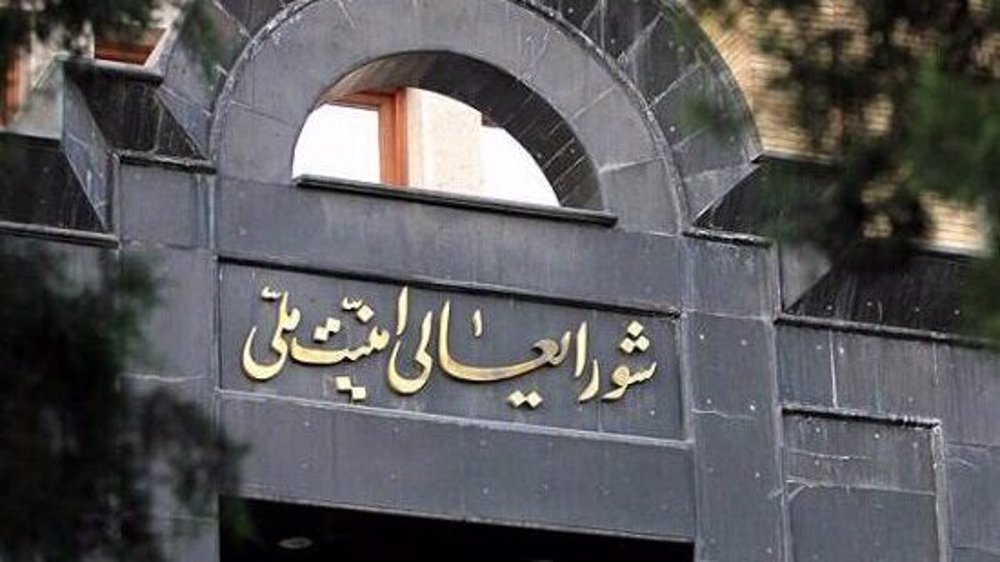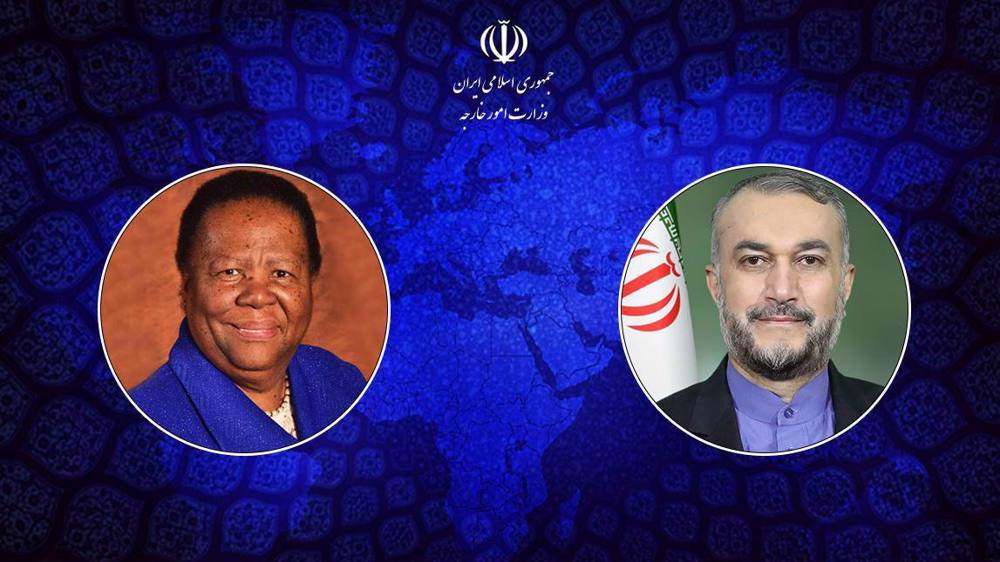Iran Parliament’s strategic plan to counter sanctions not against national interests: SNSC
Iran’s Supreme National Security Council (SNSC) says a strategic action plan to counter sanctions, the outlines of which were overwhelmingly endorsed by lawmakers, does not harm national interests following a public row between the administration and parliament.
In a statement released on Saturday, Iran’s top security body said all different procedures of the plan’s drafting and its final approval have been carried out in accordance with the parliament’s normal and legal regulations and that the SNSC secretariat has not been involved in the making of the law.
The SNSC secretariat believes that the plan does "not bring about any specific issue that would undermine national interests,” it added.
"In contrast, what is against national interests and a cause for concern is these controversies that have undermined the dignity and status of the country's legal institutions and harm national unity and solidarity,” the statement read.
“The recent remarks and attitudes that we have witnessed in recent days have compromised national interests for the sake of partisan interests, and while they do not serve the interests of the country, they convey a wrong message ... to [Iran’s] enemies,” it added.
The statement emphasized that the SNSC secretariat is aware of the approach of some parties who seek to spread controversy and undermine its role, position and performance “but has no intention to respond to them.”
It strongly advised all parties to end “fruitless disputes” and warned that it would not allow the interests of the country to be endangered by political games.
On Tuesday, 251 out of 260 Iranian lawmakers present at the parliament voted ‘yes’ to the outlines of the draft bill, which will require the Iranian administration to suspend more commitments under the multilateral nuclear deal, officially known as the Joint Comprehensive Plan of Action (JCPOA).
The plan, among other things, requires the Atomic Energy Organization of Iran (AEOI) to produce at least 120 kg of 20-percent enriched uranium annually and store it inside the country within two months after the adoption of the law.
It also urges the AEOI to start the installation, gas injection, enrichment and storage of nuclear materials up to an appropriate enrichment degree within a period of three months using at least 1,000 IR-2m centrifuges.
During a cabinet meeting in Tehran on Wednesday, Iranian President Hassan Rouhani said his administration “does not agree” with the bill, dubbed the Strategic Action Plan to Counter Sanctions.
The administration, he said, “considers it harmful to the trend of diplomatic activities” meant to keep the 2015 nuclear deal alive, over two years after the US abandoned the UN-endorsed agreement.
US President Donald Trump unilaterally pulled Washington out of the JCPOA in May 2018, and unleashed the “toughest ever” sanctions against the Islamic Republic in defiance of global criticism.
Since the much-criticized exit, Washington has been attempting to prevent the remaining signatories – Britain, France, China and Russia plus Germany – from abiding by their commitments and thus kill the historic agreement, which is widely viewed as a fruit of international diplomacy.
Iran remained fully compliant with the JCPOA for an entire year, waiting for the co-signatories to fulfill their end of the bargain by offsetting the impacts of American bans on the Iranian economy.
But as the European parties failed to do so, the Islamic Republic moved in May 2019 to suspend its JCPOA commitments under Articles 26 and 36 of the deal that cover Tehran’s legal rights.
Read more:
Haniyeh: Justice demands arrest of Netanyahu, his terrorist cabinet
VIDEO | Israeli war crimes in Gaza
Syrian president, Bahrain FM discuss expansion of bilateral relations
Sudan demands UNSC emergency meeting on UAE ‘aggression’
VIDEO | Press TV's news headlines
17,000 children left unaccompanied in Gaza amid Israel’s war: UN agency
Iraq’s lawmakers call for expulsion of US ambassador
Hundreds of students arrested as Gaza war campus protests spread in US













 This makes it easy to access the Press TV website
This makes it easy to access the Press TV website